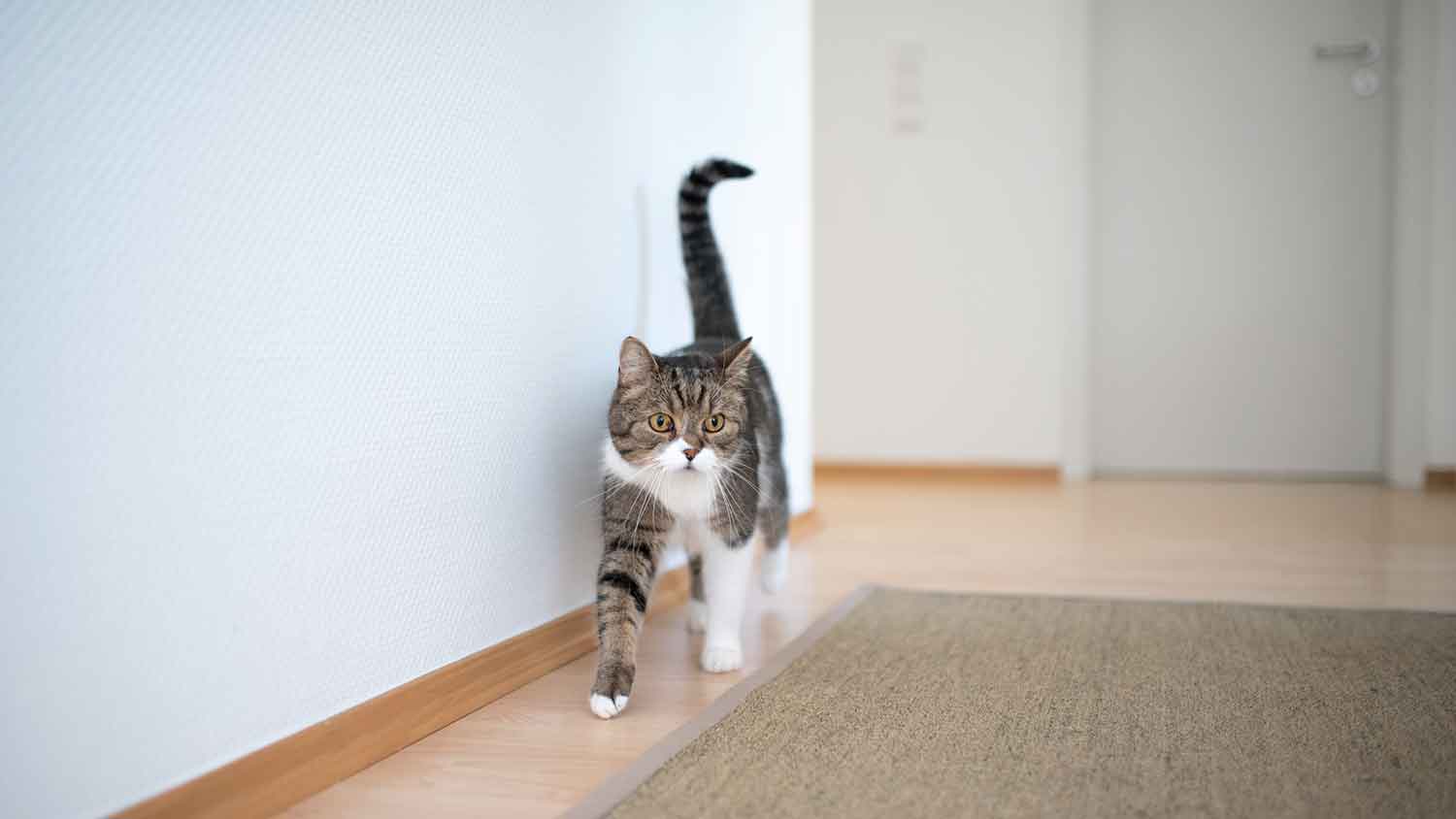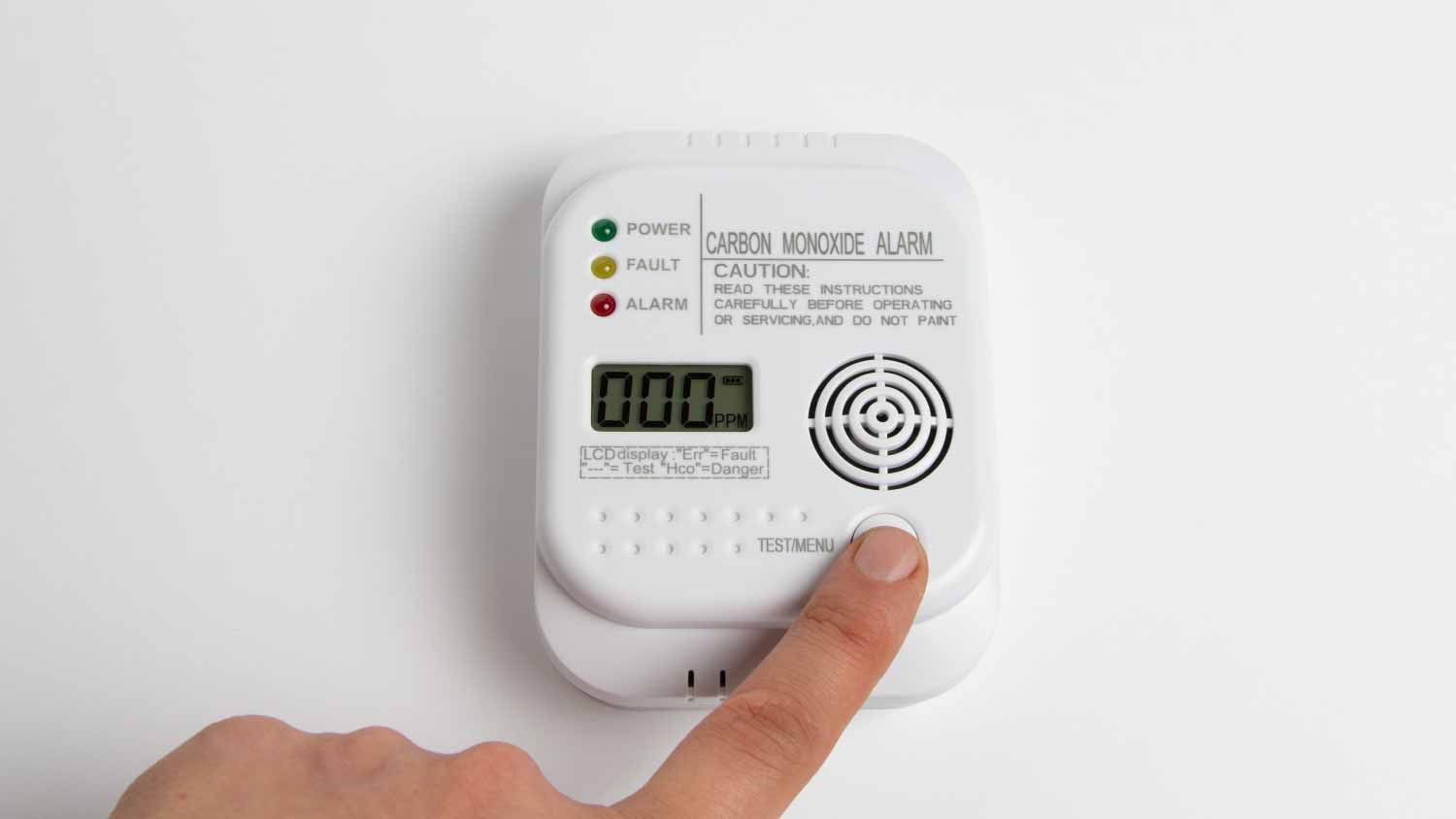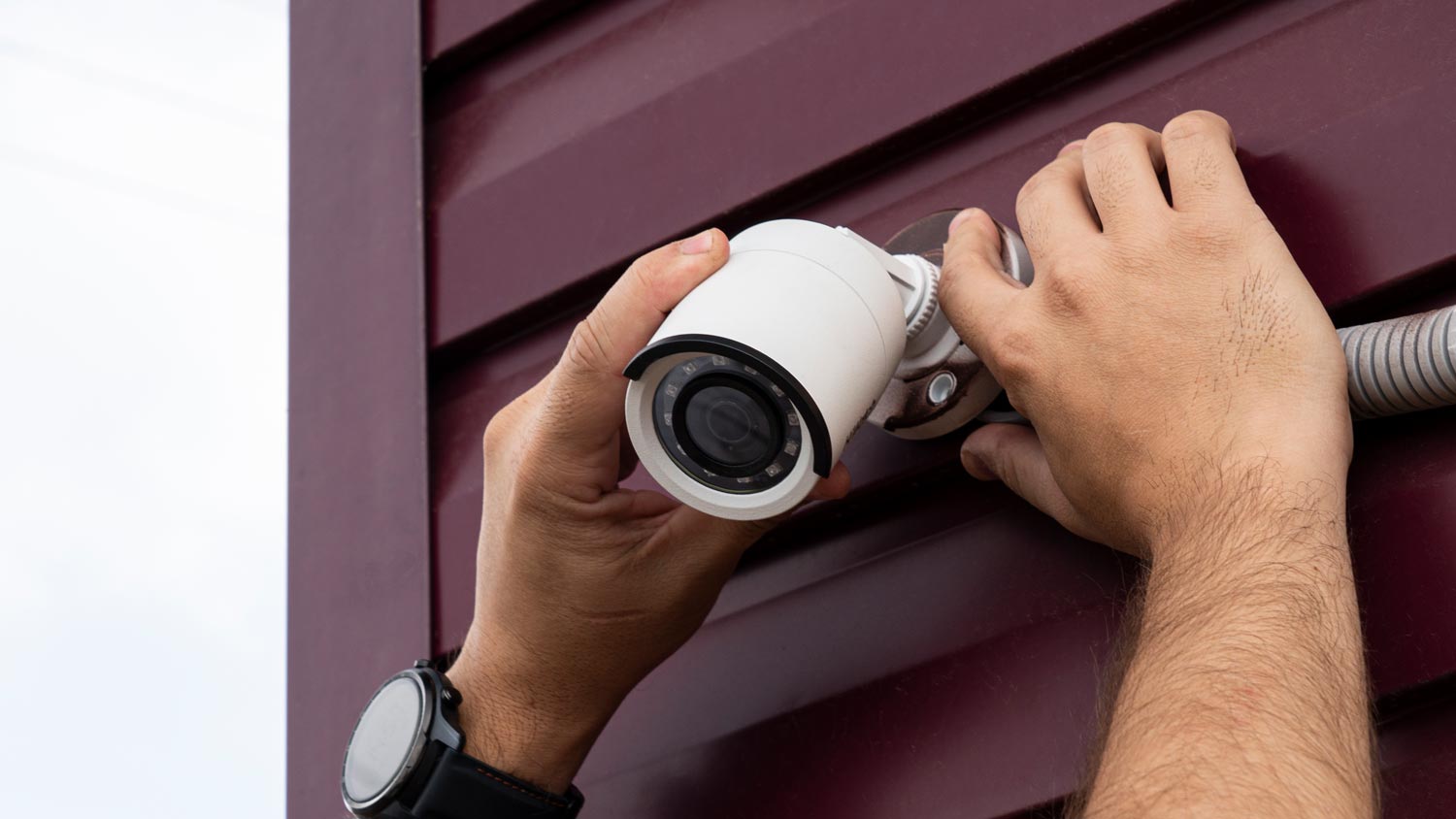What Causes False Alarms on Home Security Systems?
Prevent false alarms (and their cost) by avoiding these situations


The most common causes of false alarms on home security systems are pets, bad installation, dead batteries, and leaving doors and windows open.
Choose a home security system that’s user-friendly to decrease the chance of false alarms.
Proper security system maintenance can help keep false alarms at bay.
Having a home security system is a great idea—it definitely deters crime better than security signs—but it also opens you up to the risk and cost of setting off a false alarm. These aren’t just an inconvenience; they come with a cost for both a resident and their local emergency services. Depending on your city laws, you could expect to pay anywhere from $25 to over $400 for the services required to respond to a false alarm. Reduce that likelihood by getting to know what causes false alarms on home security systems.
Why Do False Alarms on Home Security Systems Happen?
Like anything else, home security systems aren’t perfect. The number one cause of false alarms is simple human error. Someone who isn’t familiar with the system may set it up wrong or forget to set a specific setting.
In a busy household, anyone from family members to a pet sitter can accidentally trigger your home security system’s alarm. That’s why it’s really important to make sure that anyone who comes into contact with the system is properly trained in both setting it up and turning it off if an alarm begins to sound.
What Causes False Alarms?

Alarm ringing, but no intruder to be found? You may be dealing with one of the following issues that caused a false alarm:
Pets and Animals
Some types of home security systems are equipped with motion detectors that are designed to trigger an alarm when they sense any movement in a room or space. Dogs and cats have often been known to set off motion detectors as they roam the house in the absence of their owners. Make sure that if you have pets, you set up pet-friendly motion detectors in your home or adjust the settings so that your pet won’t set off an alarm accidentally.
Incorrect Installment
If you set up your home security system yourself, make sure you follow the rules about where to place each piece. Whether it’s a motion sensor, control panel, or wiring, placing it in the wrong area could bring about all kinds of trouble.
For example, a motion sensor too close to a heating or cooling vent could trigger a false alarm, or the wires of your security system could loosen over time and move around, easily setting off false alarms. Also consider the weather, as wind or storms could have the potential to shake doors and windows—something that could trigger a false alarm via a badly placed motion sensor. It’s best to work with a pro who knows how to install a security door for this reason.
Dead Batteries
This one speaks for itself. In many older alarm systems, not being on top of your battery replacement schedule can mean your sensors and cameras have a better chance of triggering false alarms. Luckily for most modern systems, this isn’t the case.
Leaving Doors and Windows Open
Before you leave the house and set your security system, make sure there are no doors and windows left open that could trigger a false alarm. If a gust of wind blows a curtain into a motion sensor or a loose window frame happens to fall, it could cause a false alarm without you knowing. And there’s a chance your alarm could go off as soon as you try to set it if there’s a door completely open, for example.
Human Error
If you’re the kind of person who prefers to wing devices and not read the instructions—or you moved into a new home with a pre-existing security system and no manual, then you could find your system releases false alarms from simple human error. Incorrectly operating your alarm system, failing to correctly disable it, or not responding to prompts through a smartphone can all cause the alarm to go off.
Outdated Systems
As with all older technology, your home security system eventually reaches its expiration date. When this happens, and the manufacturer releases newer models and stops updating older versions, your system could start to act up. Whether it’s faulty sensors, poor wiring, or bugs in the software, outdated alarm systems can trip off and cause false alarms.
Most home security systems have a life span of five to ten years, depending on the type of system, whether or not it’s wired, and how much you use it. If your system is approaching the five-year mark, it might be worth replacing if it constantly experiences false alarms and other signs of malfunctioning.
Software Glitches
Every once in a while, technology doesn't go according to plan. If there's an issue with the software itself and not your actual security device, then you could hear your alarm go off out of the blue. Usually, when software glitches, it's because of a bug in the software. Consider looking up your exact model on the manufacturer’s website or in technical support threads online to see if others are experiencing the same problem.
You can also contact the manufacturer directly for a status update if you believe there’s an issue with the software. If your home security system is still within its warranty plan, the manufacturer could replace or repair the system for free.
How to Prevent a False Alarm
There are a few home security tips you can use to decrease the amount of false alarms that you experience with your home security system.
Choose the Right System for You
It’s best to replace old home security systems that send out false alarms, but choosing the right alarm system can be challenging with so many types of security systems and products on the market. What’s more is that some home security systems offer better reliability than others. It’s important to research the best home security systems when picking home security upgrades for your home to avoid issues like false alarms and other faulty technical inconveniences.
When picking a new home security system, consider your budget, level of security, specs, lifestyle, and type of security. Remember, the best way to get the most out of your system is to have a professional do the job.
If you don’t want to maintain your system yourself, look into a professionally installed system that’s hardwired into your home—keep in mind the difference between a hardwired security system versus wireless, as well as a monitored system versus an unmonitored one.
Maintain Your Security System
Make sure you do home security system maintenance on a weekly, monthly, and yearly basis. That means cleaning the equipment regularly to make sure no dust, debris, or dead insects can set off a camera or sensor and the system can run smoothly. It also means checking batteries to see if they need replacing or charging—a surefire way to keep false alarms at bay.
Ask a Pro for Help
Whether it’s installation or just a routine maintenance check-in, you can always reach out to a home security system professional near you to get the best advice and an expert opinion.
DIY vs. Hiring a Pro
Many home security systems are DIY-friendly, but that doesn't mean that installing one yourself is the best way to keep your home secure. Incorrectly installing your home security system can create a false sense of security while also leading to false alarms and other errors. On the contrary, a professional installer has an eye for the right details when it comes to maximizing your home's security system.
Your pro can assess your home interior and exterior, help you choose the right number and type of home security devices for your system, recommend the most effective locations and placements for the devices, and professionally install them so that you don’t have to worry about any blindspots or weak access points around your home.
Frequently Asked Questions
False alarms happen, and they could be due to a problem you need to troubleshoot, like faulty wiring, a mistaken setting, or the system needing an update. Turn off your system by disconnecting its power supply (both the battery and transformer) and give the manufacturer a call to see what they advise.
It depends on the type of sensor your home security system uses. If it’s a motion detector, any moving thing could set it off, from a roaming pet to a wind-blown curtain. Contact sensors would be triggered by the window being opened or moved. Also, be aware that any sensors placed too close to your vents could trigger false alarms whenever your heat or air conditioning is running.





- 5 Causes of False Alarms and How to Prevent Them
- Are Home Alarm Systems Worth It?
- How to Choose a Home Security System: Factors to Consider When Buying Home Security Equipment
- How to Do Home Security System Maintenance: Weekly, Monthly, and Yearly Checklist Items
- Do Security Signs Actually Deter Crime?
- How Much Does a Security System Affect Home Insurance?
- Do Alarm Systems Deter Burglars? Which Home Security Methods Actually Work
- 10 Benefits of Home Security Cameras and What You Need to Know Before Installing
- Are Security Cameras Worth It? Your Guide to At-Home Security
- 11 Home Heating Mistakes You Didn't Know Were Costing You










